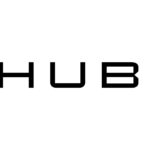Insurers continue to focus on improving claims technology, according to Karlyn Carnahan, research director at Celent. The main area of improvement is the replacement of aging claims administration systems, with more than 50 percent of carriers currently in the process of replacement.
Executive Summary
Improving claims technology can help insurers with more than just productivity, says Celent’s research director, who also cites customer service, underwriting and claims reporting as areas that will be affected.“Larger carriers are more likely to rewrite or extend the code on the existing systems,” Carnahan said. “Smaller and midsized carriers are more likely to use vendor package solutions and are really looking at starting the replacement project.
“While insurers are interested in improving claims productivity, the real focus continues to be in improving claims customer service.
“The quality of the claim service really impacts the customer’s view of the carrier,” Carnahan said. “It’s often the only contact the customer has of the carrier outside of the regular bill.”
Insurers are zeroing in on the ability to offer a consistent customer service experience with special handling processes for certain claim types.
Carnahan said a modern user interface—another reason for replacing antiquated claims administration systems—is much easier to navigate, making it more efficient to work.
“The modern claims admin system has built-in workflow tools and allows the carrier to have consistent workflows and processes. Combining business rules with that workflow lets them operationalize predicted models that are starting to be used,” she said.
Modernizing claims administration systems offers additional benefits for insurers, including gathering data that can be used to hone pricing models and refine underwriting guidelines as well as to identify potential new product opportunities, the Celent researcher said.
Newer systems can help carriers attract new employees too.
“Carriers are also looking to rapidly onboard new users, especially in a cat situation when you might be bringing in employees from all around the organization. Carriers are really trying to look at how they are going to attract new employees. This new generation really won’t put up with a clunky green screen system or even, in many cases, a client/server-based system,” said Carnahan.
Beyond the core administration, Carnahan said carriers are improving technology at every step of a claim.
Insurers are offering multi-intake channels for first notice of loss, she said. Particularly in personal and commercial auto lines, carriers are offering first-notice claims reporting via mobile applications.
Besides new initial claims reporting options, Carnahan said that the claims process is also benefiting from the latest technology. She cited Allstate and Esurance as examples of carriers that allows claimants and insureds the ability to upload a photo or video of damage and receive an estimate after adjusters have reviewed it.
Scoring during the first notice of loss to assess complexity and to make automated adjuster assignments using business rules and workflow is another technology being implemented by carriers, particularly in personal and workers compensation lines.
Insurers are using mobile devices, e-signatures and in-car printers to provide immediate payments at the time of the initial visit.
“This isn’t like the old ‘let me write you a draft,'” Carnahan said. “This is where the adjuster has entered into the claims admin system, issued a check out of the admin system that has depleted a reserve and actually issued a check in the car. It’s very different than the old-time draft.”




















 Beazley Agrees to Zurich’s Sweetened £8 Billion Takeover Bid
Beazley Agrees to Zurich’s Sweetened £8 Billion Takeover Bid  Chubb CEO Greenberg on Personal Insurance Affordability and Data Centers
Chubb CEO Greenberg on Personal Insurance Affordability and Data Centers  Modern Underwriting Technology: Decisive Steps to Successful Implementation
Modern Underwriting Technology: Decisive Steps to Successful Implementation  Insurance Groundhogs Warming Up to Market Changes
Insurance Groundhogs Warming Up to Market Changes 





